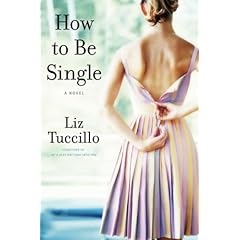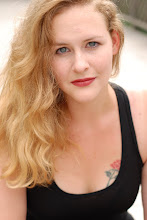
Published by Simon & Schuster.
This book was a fun read, but it's by no means a pinnacle of literary achievement. The characters are consistent, the plots make sense (most of the time), and everything wraps up in the end. I can't shake the nagging feeling, however, that I'm being written for. We come to expect, with television and film, that whatever makes the most money is what's going to be what's released, and I know this happens with books as well, but somehow I like to think that books are above all that.
No great insights will come from reading this book. At no point did I have the distinct feeling that the author really has something important to convey. The characters are not so complex, which I believe is a mistake. The point of a character is to have them represent, if not a real person, a person that could potentially be real, whereas Julie (the narrator) and her friends are all one of a type--the divorcée who just wants to let loose, the depressive, the lawyer on a manhunt, the uptight yoga swami who just wants to let loose...
The novel begins: Julie introduces five women in New York (strangers), whom she convinces go out for a (disastrous) night on the town to cheer up her recently divorced friend Georgia. After that, Julie departs for a trip around the world (to research writing a book about single women), and the other four women's stories are followed. For some reason, in any situation, they end up contacting each other. I assume they have no other friends. They each encounter some kind of crisis, summed up on page 339: "Alice just called off her wedding, Julie had an affair that went very badly, Serena watched someone die, [Georgia] almost got [her] children taken away from [her], and Ruby is clinically depressed." Meanwhile, Julie's experiences in France, Italy, Brazil, Australia, China, India and Iceland are reported, making generalizations about each country's women--I should note that the author realizes they're likely overly general. Still, the women she meets during her travels seem to be perfect representations of these generalizations. The character I related to least was Julie, the self-deprecating, supposedly typical American woman who, beyond all reason, becomes the object of an ideal (but married) man's affections. I say beyond all reason because she exudes typicality at every opportunity, and yet he's supposed to find her absolutely enchanting. She spends a lot of time complaining about her thighs and making not so groundbreaking observations about love, life, and whatever. It seems to me that, in an effort to make Julie a broad enough character to be able to relate to women ages 23-49, she's lost any real character.
I've come to the conclusion that this book would make a great movie or miniseries. It really needs real people (actors, actresses) to fill in the personality gaps. That, and I'm more willing to be interested in pretty, neurotic single women on film. I have to put less effort into it. Tuccillo was an executive story editor for Sex and the City, which I admit to watching from beginning to end (and then again). There are some similarities between this and that (some women who are friends, a red-headed lawyer, a character intent on finding a husband--Charlotte-style, a main character who's a writer and makes broad generalizations while learning life lessons), but it's just better on film. On film I wouldn't notice all the sentence fragments.

No comments:
Post a Comment